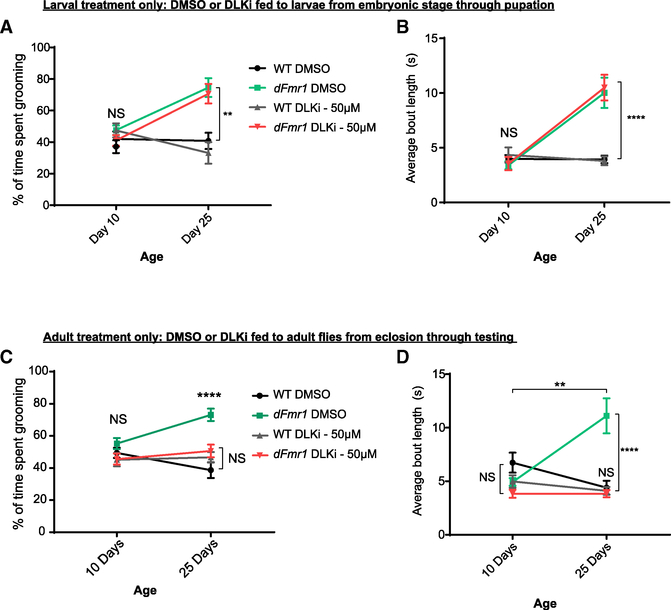Figure 7. Feeding DLK Inhibitor to dFmr1 Mutant Adult Flies Prevents Repetitive Grooming Behavior.
(A) Wild-type and dFmr1 mutant larvae were raised from embryonic stages through pupation on food dosed with either vehicle (DMSO) or DLK inhibitor (50 uM). Adult flies were immediately moved to regular food after eclosion and consumed regular food throughout adulthood. Quantification of percent of time spent grooming during 3-min trials on days 10 and 25. dFmr1 mutants exhibited increased grooming in both conditions.
(B) Quantification of average bout length within each 3-min trial for wild-type and dFmr1 flies raised as larvae on either DMSO or DLK inhibitor. Average bout length was calculated by dividing the total number of bouts initiated by the total number of seconds spent grooming.
(C) Wild-type and dFmr1 mutant larvae were raised from embryonic stages through pupation on normal food, and adult flies were moved to food dosed with either DMSO or DLK inhibitor within 8 h of eclosion, limiting treatment to post-development. Quantification of percent of time spent grooming during a 3-min trial for wild-type and dFmr1 adult flies treated with either DMSO or DLK inhibitor post-eclosion.
(D) Quantification of average bout length within each 3-minute trial for wild-type and dFmr1 flies treated with either DMSO or DLK inhibitor post-eclosion. Feeding DLK inhibitor to dFmr1 mutant adults was sufficient to prevent repetitive grooming.
*p = 0.05; **p = 0.01; ***p = 0.001; ****p = 0.0001; NS, not significant; p > 0.05. p values shown on figure represent statistical comparison to wild-type control within the same testing age unless noted by an additional bar.
Detailed statistical tests and additional comparisons available in Table S1.

